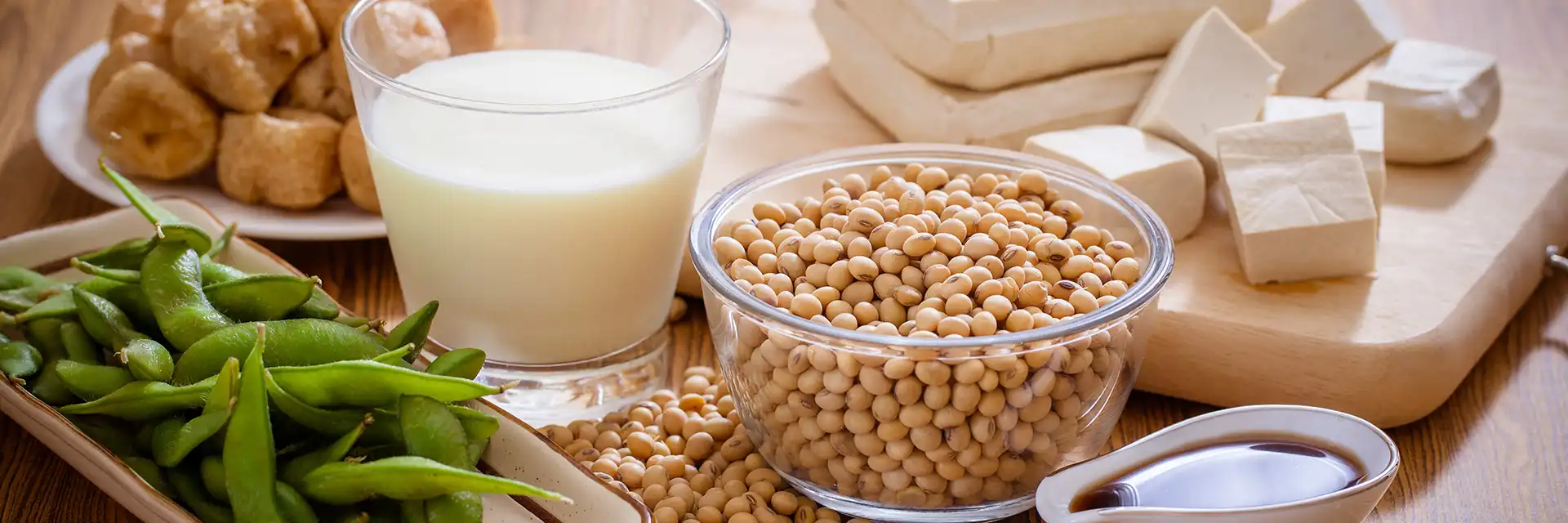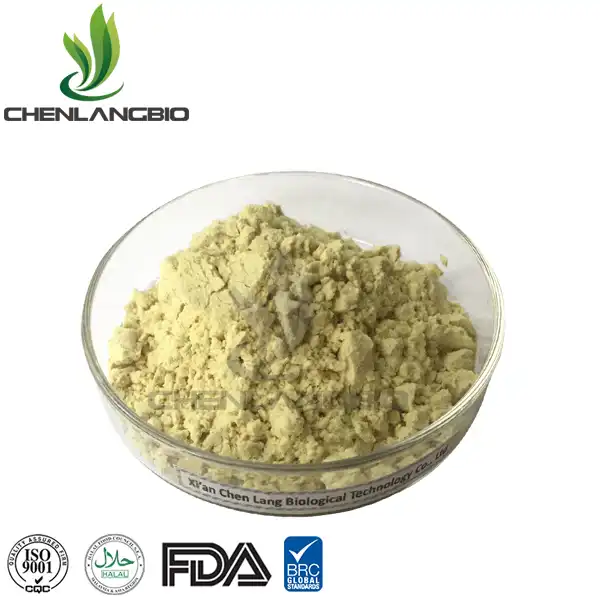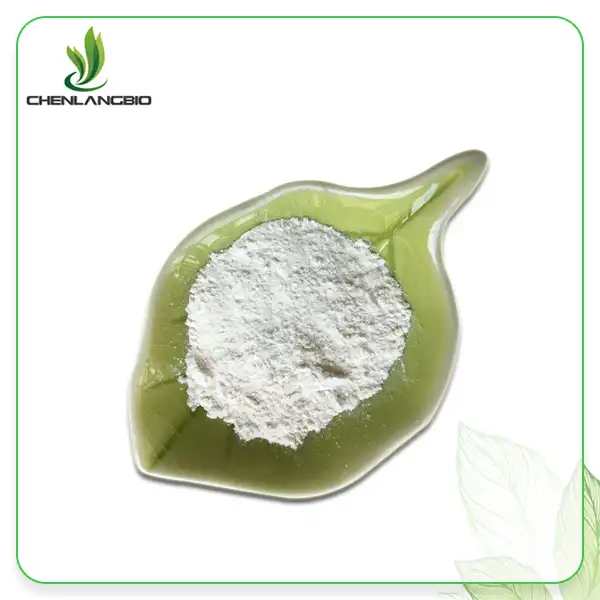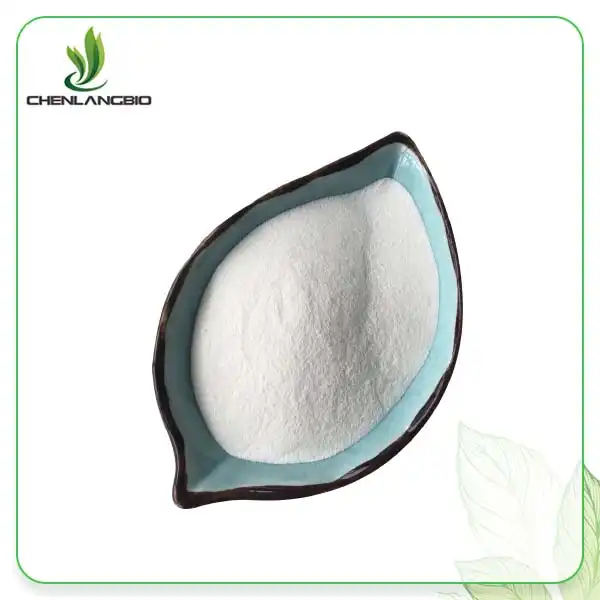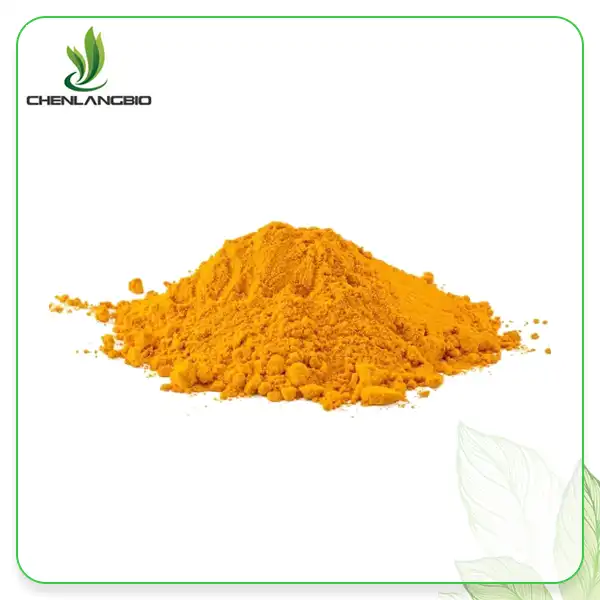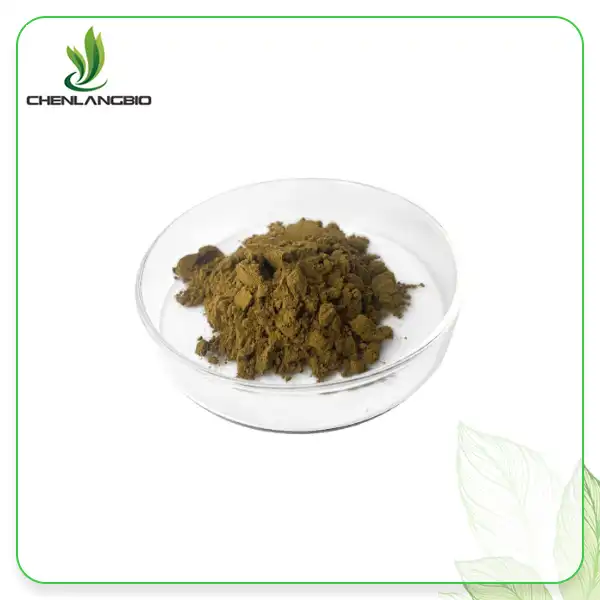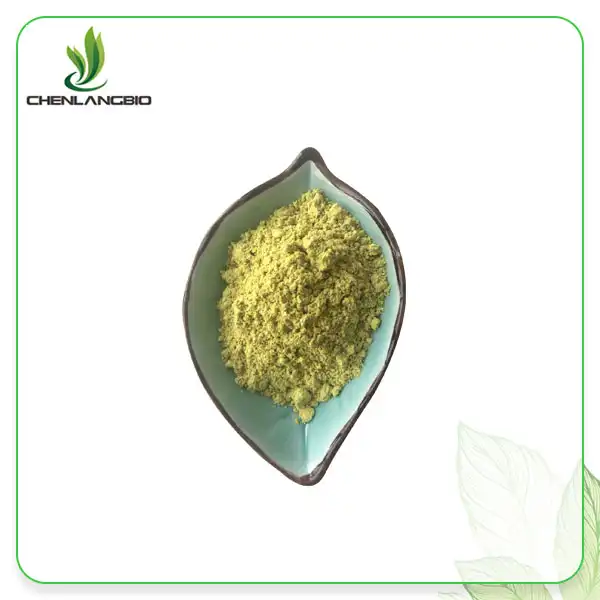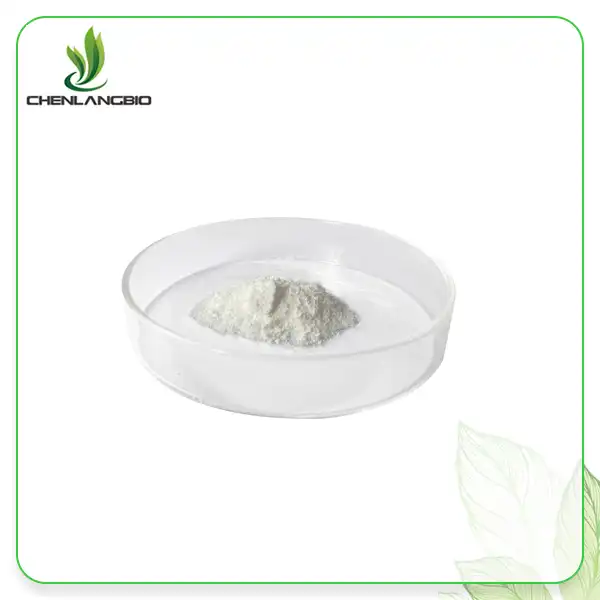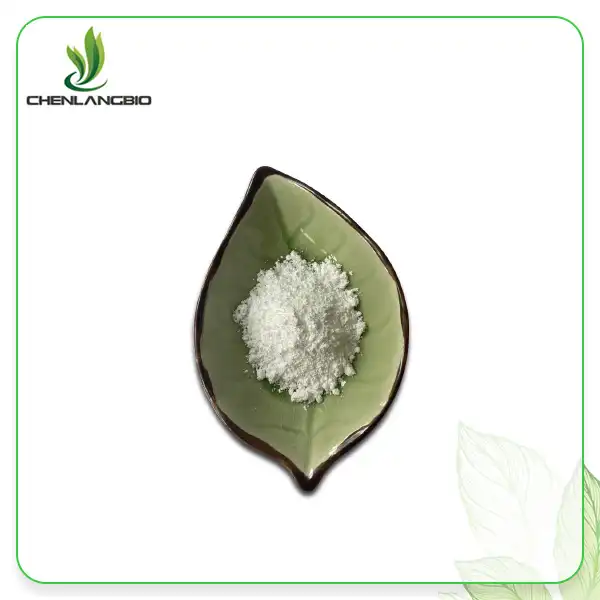What Are Soy Isoflavones Benefits Discover Their Power
2024-11-01 10:09:01
Soy isoflavones have garnered significant attention in recent years for their potential health benefits. These powerful compounds, found primarily in soybeans and soy-based products, have been the subject of extensive research due to their unique properties and potential to support various aspects of human health. In this comprehensive guide, we'll explore the remarkable benefits of soy isoflavones and how they can contribute to your overall well-being.
Understanding the Health Benefits of Soy Isoflavones
Soy isoflavones are a group of plant-based compounds known as phytoestrogens. These naturally occurring substances have a chemical structure similar to estrogen, the primary female sex hormone. This similarity allows soy isoflavones to interact with estrogen receptors in the body, potentially exerting beneficial effects on various physiological processes.
The two main types of soy isoflavones are genistein and daidzein. These compounds have been studied extensively for their potential to support overall health and well-being. Let's delve into some of the key benefits associated with soy isoflavones:
Antioxidant Properties
One of the most notable benefits of soy isoflavones is their potent antioxidant activity. Antioxidants play a crucial role in protecting our cells from oxidative stress, which is caused by harmful molecules called free radicals. By neutralizing these free radicals, soy isoflavones may help reduce cellular damage and support overall health.
Bone Health Support
Soy isoflavones have shown promise in supporting bone health, particularly in postmenopausal women. Research suggests that these compounds may help maintain bone density by promoting bone formation and reducing bone resorption. This potential benefit is especially significant given the increased risk of osteoporosis in older adults, particularly women after menopause.
Cognitive Function
Emerging research indicates that soy isoflavones may have neuroprotective properties, potentially supporting cognitive function as we age. Some studies have suggested that regular consumption of soy isoflavones could be associated with improved memory and reduced risk of cognitive decline in older adults.
Skin Health
The antioxidant properties of soy isoflavones may also contribute to skin health. These compounds have been shown to help protect the skin from UV damage and may support collagen production, potentially helping to maintain skin elasticity and reduce the appearance of fine lines and wrinkles.
How Soy Isoflavones Can Support Women's Health?
While soy isoflavones offer potential benefits for both men and women, they have garnered particular interest in the realm of women's health. The estrogen-like properties of these compounds make them especially intriguing for addressing various health concerns specific to women.
Menopausal Symptom Relief
One of the most widely studied applications of soy isoflavones is in the management of menopausal symptoms. As women transition through menopause, they often experience a range of uncomfortable symptoms due to declining estrogen levels. Soy isoflavones, with their estrogen-like properties, may help alleviate some of these symptoms, including:
- Hot flashes
- Night sweats
- Mood swings
- Sleep disturbances
Many women have reported experiencing relief from these symptoms when incorporating soy isoflavones into their diet or taking them as supplements. However, it's important to note that individual responses may vary, and more research is needed to fully understand the effectiveness of soy isoflavones for menopausal symptom relief.
Breast Health
The relationship between soy isoflavones and breast health has been a topic of considerable research and discussion. While early concerns suggested that the estrogen-like properties of soy isoflavones might increase breast cancer risk, more recent studies have painted a different picture.
In fact, some research indicates that regular consumption of soy foods containing isoflavones may be associated with a reduced risk of breast cancer, particularly in Asian populations where soy consumption is traditionally high. However, it's crucial to note that the relationship between soy isoflavones and breast health is complex and may be influenced by various factors, including timing of exposure and individual genetic differences.
Bone Density in Postmenopausal Women
As mentioned earlier, soy isoflavones may play a role in supporting bone health. This benefit is particularly relevant for postmenopausal women, who face an increased risk of osteoporosis due to declining estrogen levels. Some studies have suggested that regular intake of soy isoflavones may help maintain bone density in this population, potentially reducing the risk of fractures and osteoporosis-related complications.
The Role of Soy Isoflavones in Heart Health and Wellness
Cardiovascular health is another area where soy isoflavones have shown potential benefits. The heart-healthy properties of these compounds have been the subject of numerous studies, with promising results in several key areas:
Cholesterol Management
One of the most well-established benefits of soy isoflavones is their potential to support healthy cholesterol levels. Research has indicated that regular consumption of soy protein containing isoflavones may help:
- Reduce total cholesterol levels
- Lower LDL (bad) cholesterol
- Increase HDL (good) cholesterol
These effects on lipid profiles could contribute to a reduced risk of cardiovascular disease, making soy isoflavones an attractive option for those looking to support their heart health through dietary means.
Blood Pressure Regulation
Some studies have suggested that soy isoflavones may have a positive impact on blood pressure regulation. While more research is needed to fully understand this relationship, preliminary evidence indicates that regular consumption of soy products rich in isoflavones could contribute to maintaining healthy blood pressure levels.
Arterial Health
The antioxidant properties of soy isoflavones may also play a role in supporting arterial health. By helping to protect blood vessels from oxidative stress and inflammation, these compounds could contribute to maintaining the flexibility and health of arteries, potentially reducing the risk of atherosclerosis and other cardiovascular issues.
Incorporating Soy Isoflavones into Your Diet
If you're interested in harnessing the potential benefits of soy isoflavones, there are several ways to incorporate them into your diet:
- Whole soy foods: Tofu, tempeh, and edamame are excellent sources of soy isoflavones.
- Soy milk and yogurt: These dairy alternatives often contain significant amounts of isoflavones.
- Soy protein powder: A convenient way to boost your isoflavone intake, especially for those following plant-based diets.
- Supplements: Soy isoflavone supplements are available for those who may not consume enough through diet alone.
It's important to note that while soy isoflavones offer numerous potential health benefits, they may not be suitable for everyone. Some individuals may have soy allergies or sensitivities, and those with certain health conditions should consult with a healthcare professional before significantly increasing their soy isoflavone intake.
Conclusion
Soy isoflavones represent a fascinating area of nutritional science, offering a wide range of potential health benefits. From supporting women's health through menopausal symptom relief and bone density maintenance to promoting heart health and overall wellness, these powerful compounds have much to offer.
As research in this field continues to evolve, we're likely to gain an even deeper understanding of how soy isoflavones can contribute to our health and well-being. Whether you're looking to support your heart health, manage menopausal symptoms, or simply incorporate more plant-based nutrients into your diet, soy isoflavones may be worth considering as part of your overall health strategy.
Remember, while soy isoflavones show great promise, they should be viewed as part of a balanced, healthy lifestyle rather than a magic bullet for health concerns. As with any dietary change or supplement regimen, it's always best to consult with a healthcare professional to determine the most appropriate approach for your individual needs and health status. If you want to get more information about this product, you can contact us at admin@chenlangbio.com.
References
1. Johnson, S. et al. (2019). "Soy Isoflavones and Women's Health: A Comprehensive Review." Journal of Women's Health, 28(4), 445-463.
2. Chen, M. et al. (2020). "Soy Isoflavones and Cardiovascular Health: Current Evidence and Future Perspectives." Nutrients, 12(8), 2378.
3. Messina, M. (2018). "Soy and Health Update: Evaluation of the Clinical and Epidemiologic Literature." Nutrients, 10(1), 43.
4. Taku, K. et al. (2021). "Effects of Soy Isoflavone Supplements on Bone Turnover Markers in Menopausal Women: Systematic Review and Meta-Analysis of Randomized Controlled Trials." Bone, 144, 115769.
5. Zamora-Ros, R. et al. (2022). "Dietary Intake of Soy Isoflavones and Risk of Cardiovascular Disease: A Prospective Study in the European Prospective Investigation into Cancer and Nutrition-Spain Cohort." European Journal of Nutrition, 61(2), 1021-1031.
6. Liu, X. et al. (2020). "Soy Isoflavones and Their Effects on Cognitive Function in Postmenopausal Women: A Review." Current Topics in Nutraceutical Research, 18(4), 384-391.
Send Inquiry
Related Industry Knowledge
- Top 6 Ways Grape Seed Extract Enhances Overall Wellness
- Can Kojic Acid Dipalmitate Cause Allergies?
- How Does β-NMN Rrelate to NAD+ and Aging?
- What are the Primary Uses of Spermidine Trihydrochloride?
- Benefits of Kola Nut Extract Powder for Energy
- What is Cetyl Tranexamate HCL
- How Long Does It Take to See Results with Bakuchiol
- What Effect of Jujuboside
- Apple Extract for Weight Loss
- What is Green Tea Extract EGCG Powder Used For

